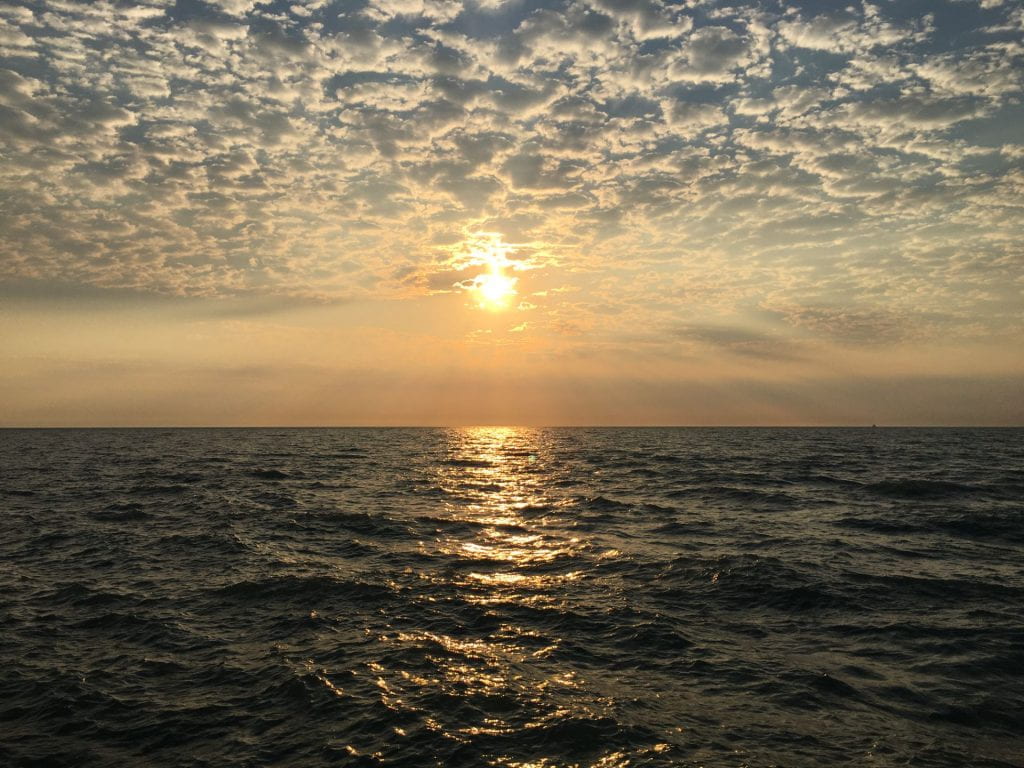Have you ever had an uplifting, transformational experience that is so striking that, at least in the moment, you don’t think you can go back to the way things were? Where you lost your routine thoughts and cares and became one with the moment, washed away with wonder? Did it feel as if you were no longer just “you” but part of a broad tapestry of life and being, woven together in uncanny ways? This happens to me most often when I’m on a trip or in nature, quite appropriately in a liminal or in-between space. Often, it takes such distance from the mundane to open myself up to transformation. Hiking the heights of mountains, staring off into the sunset of a boundless ocean, living and caring for others on a service trip, or closing your eyes and hearing the echoes of music in an ancient cathedral … these experiences connect us to something deeper, as we let go of our normal patterns of thought and being. They remind us of who we are and who we can be.
Details of such moments abound in good books, engaging movies, the sacred stories of many faith traditions, and in different narrative accounts of personal and collective transformation. We find one of those in the Christian scriptures in the readings prescribed for this week of the Lenten season. It is a story of a literal mountaintop experience. A few disciples have hiked up a mountain, following Jesus. At the top, they see a “transfigured” Christ, who has been revealed as supernaturally radiant. They also have visions of Elijah and Moses. We don’t need to go into the religious connotations to see this reading’s relevance in our lives. For the disciples, their mountaintop revelation is an uncanny experience—an event that they believe will forever mark a line between the before and after. They are transformed as much as Jesus is transfigured. One of the disciples wants to pitch tents and stay in that moment longer, but it is carried away, quite literally, with a passing cloud.
That’s the thing about transformational experiences. The clarity that they give can pass by as quickly as a cloud. Even as we try to hold on to them, their impact can fade with time. We can be tempted to try and stay within them—lost in their beauty, but without a clear idea of how to integrate that experience into our lives. I’m sure we’ve all been there: we come back from a trip and pledge that we’ll do things differently! But soon we lose that urgency and inspiration and fall back to the status quo.
Our own Vincentian tradition at DePaul counsels us to lean into action after these transformational experiences. Vincent de Paul had his own seminal experiences, most of which were grounded in his interactions with others. From the dying peasant in Folleville, to the outpouring of charity and the insistence of Madame de Gondi on “what must be done,” to his lifelong friendship with Louise de Marillac, Vincent was transformed by his mutuality with others. He was able to integrate these experiences into sustainable action. They revealed to him our shared mission to help others with our goodwill and honest efforts. He charged us “not only to do good, but to do it well.”[1]
What are some experiences that made you lose yourself and feel a deeper connection to the world? Did these experiences share anything in common?
Has there been a time when you’ve returned from a trip or a momentous experience, and you implemented change in your life? What was it?
What helps you personally make sustainable change? How about collectively in your work with others?
Reflection by: Alex Perry, Program Manager, Division of Mission and Ministry
[1] Conference 177, “Repetition of Prayer,” November 25, 1657, CCD, 11:289. Available at https://via.library.depaul.edu/vincentian_ebooks/37/.
